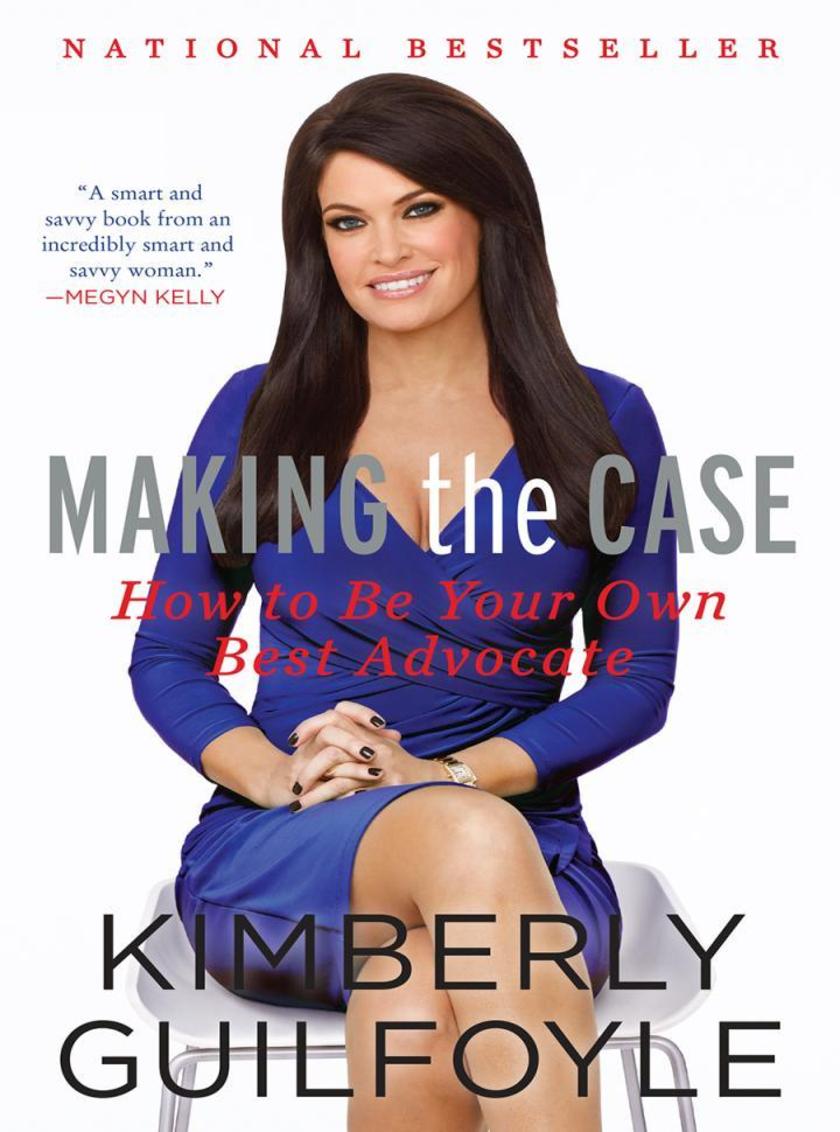
Making the Case
¥88.56
After an eleven-year-old Kimberly Guilfoyle lost her mother to leukemia, her dad wanted her to become as resilient and self-empowered as she could be. He wisely taught her to build a solid case for the things she wanted. Creating a strong logical argument was the best way to ensure she could always meet her needs. That childhood lesson led her to become the fearless advocate and quick-thinking spitfire she is today. In Making the Case, Guilfoyle interweaves stories and anecdotes from her life and career with practical advice that can help you win arguments, get what you want, help others along the way, and come out ahead in any situation.Learning how to state your case effectively is not just important for lawyers it's something every person should know how to do, no matter what stage of life they are in. From landing her dream job right out of school, switching careers seamlessly midstream, and managing personal finances for greater growth and stability to divorcing amicably and teaching her young child to advocate for himself, Guilfoyle has been there and done it. Now she shares those stories, showing you how to organize your thoughts and plans, have meaningful discussions with the people around you, and achieve your goals in all aspects of your life. You'll also learn the tips and strategies that make the best advocates so successful, some of which come directly from courtroom scenarios where the stakes are highest.Told in her winning and humorous voice, Guilfoyle's experiences and the wisdom drawn from them are a ready guide to help you reach your potential and live a fulfilling and happy life at work and at home.
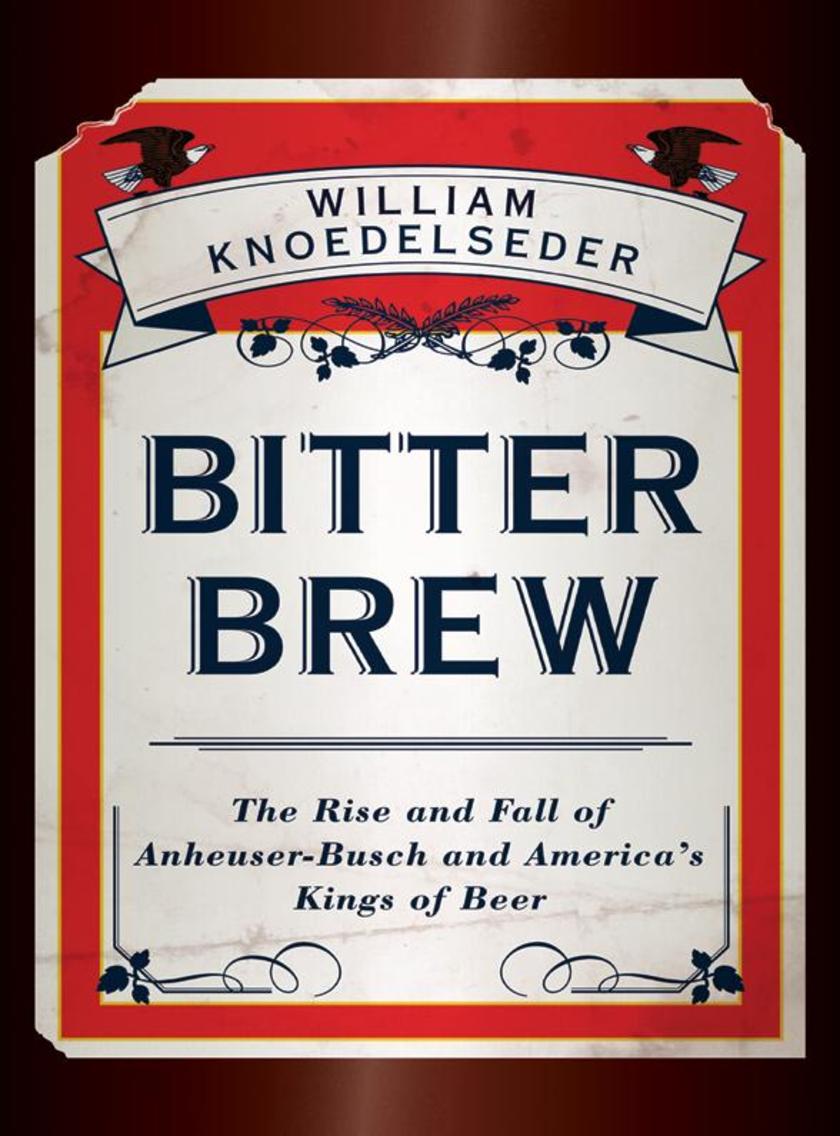
Bitter Brew
¥99.65
The engrossing, often scandalous saga of one of the wealthiest, longest-lasting, and most colorful family dynasties in the history of American commerce a cautionary tale about prosperity, profligacy, hubris, and the blessings and dark consequences of success.From countless bar signs, stadium scoreboards, magazine ads, TV commercials, and roadside billboards, the name Budweiser has been burned into the American consciousness as the "King of Beers." Over a span of more than a century, the company behind it, Anheuser-Busch, has attained legendary status. A jewel of the American Industrial Revolution, in the hands of its founders the sometimes reckless and always boisterous Busch family of St. Louis, Missouri it grew into one of the most fearsome marketing machines in modern times. In Bitter Brew, critically acclaimed journalist Knoedelseder paints a fascinating portrait of immense wealth and power accompanied by a barrelful of scandal, heartbreak, tragedy, and untimely death.This engrossing, vivid narrative captures the Busch saga through five generations. At the same time, it weaves a broader story of American progress and decline over the past 150 years. It's a cautionary tale of prosperity, hubris, and loss.
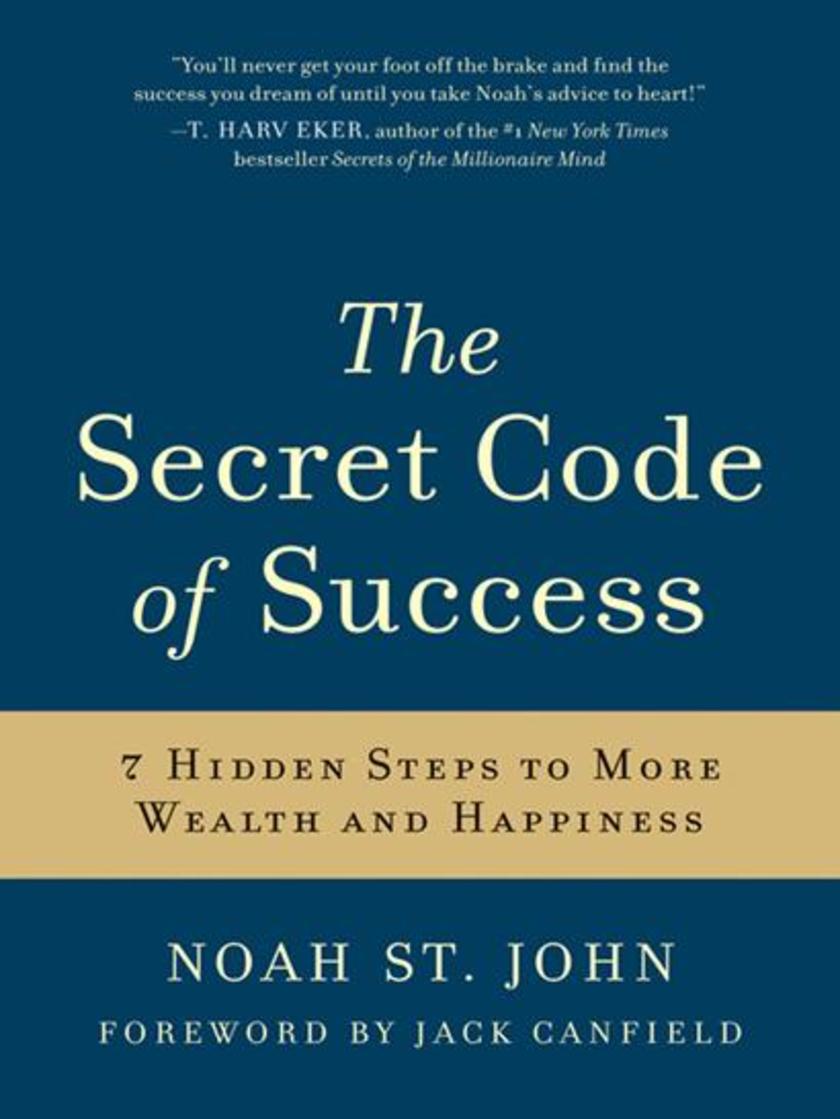
The Secret Code of Success
¥121.80
Americans spend more than $11 billion a year on self-help products everything from books to diet pills to career coaches to seminars. So why with all this time, money, and energy being spent are so few people living the life they really wantWhy are millions of smart, talented, motivated people still going through life with one foot on the brakeHere's the real Secret: You don't need any more how-to-succeed information to reach your full potential.The problem isn't lack of motivation or lack of information. The real problem is that most people focus on the "how-to" aspects of success taught by traditional self-help programs, without coming to terms with what productivity expert Noah St. John calls your "head trash" the subconscious, emotional roadblocks that prevent people from acting on their real hopes, dreams, and ambitions. In this groundbreaking book, based on work with thousands of clients around the world, Noah St. John has created a remarkable, step-by-step approach that helps you achieve long-term happiness, success, and wealth. In The Secret Code of Success, you will learn how to: Eliminate the causes of self-sabotage and fear of success Allow yourself to make more money Remove stress while dramatically increasing personal productivity Improve relationships with coworkers, family, and friends Experience enhanced feelings of happiness, connection, and love The Secret Code of Success shows that, when it comes to success, the conscious mind is exactly the wrong place to start. It's only when we first conquer the self-sabotage of our subconscious (which accounts for 90 percent of our behavior) that we can truly begin to enjoy a life filled with success. This insight is at the core of The Secret Code of Success and leads to Noah's revolutionary 7-step method for eliminating these psychological obstacles. True financial freedom and personal success is possible at last!The Secret Code of Success shows you how to get your foot off the brake and start living the life you deserve.
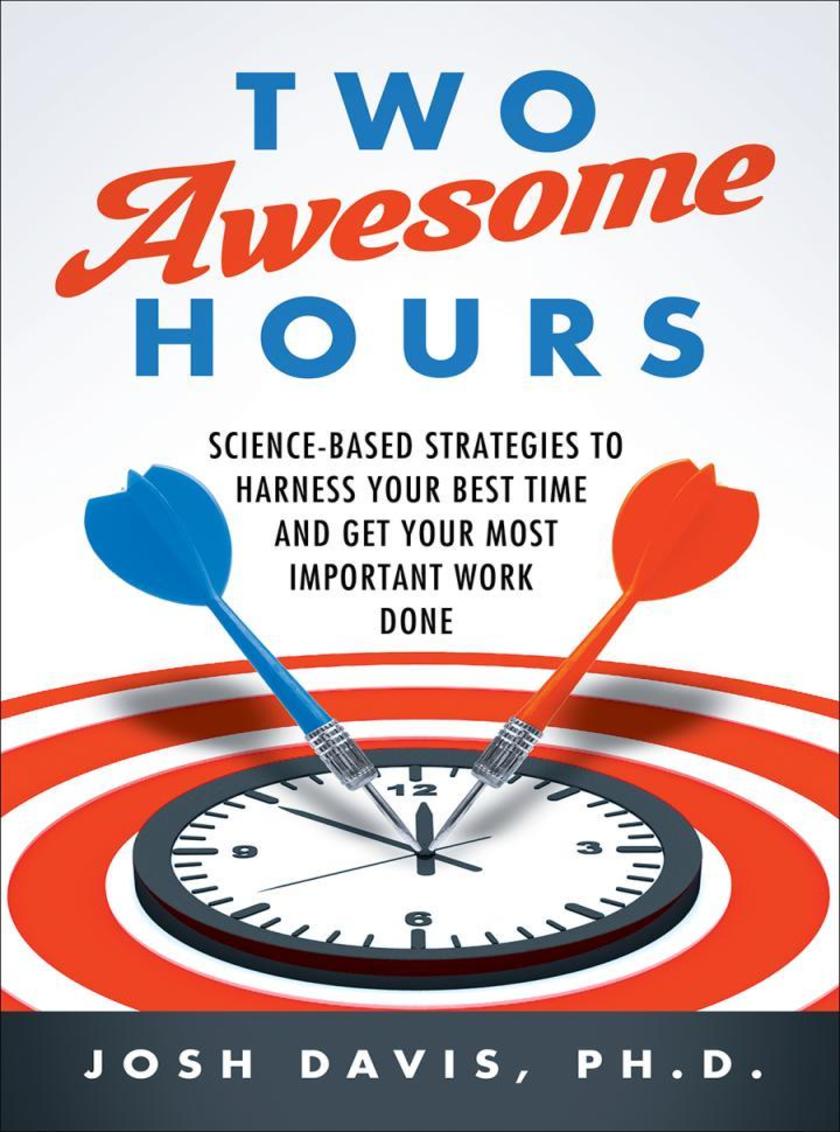
Two Awesome Hours
¥94.10
Whether we love our jobs or not, the amount of work on our plate has reached unsustainable levels. We start each workday anxious about how we will get it all done, and which important tasks will have to be sacrificed again so we can keep our heads above water. We often respond to our out-of-control to-do lists by focusing on being more efficient trying to get more done in less time.According to Josh Davis, Ph.D., we're going about it the wrong way. The answer is not to get more done faster, but rather to create the conditions for at least two awesome hours of peak productivity each day.Neuroscience and psychology research is revealing what those conditions are. Drawing on this research, Davis explains that our minds operate according to complex factors that, when leveraged the right way, can make us truly effective. Davis shows us five deceptively simple strategies to create the conditions for incredible productivity and to restore sanity and balance to our lives: Maximize the moments in our day when we are between tasks, intentionally choosing what to tackle next Schedule tasks based on their cognitive and emotional demands Learn how to direct attention Feed and move our bodies for short-term benefit Identify how our environment affects our focus and alertness We are capable of impressive feats of comprehension, motivation, and performance when our psychological and biological systems are functioning optimally. Two Awesome Hours will show us how to be our most productive every day.
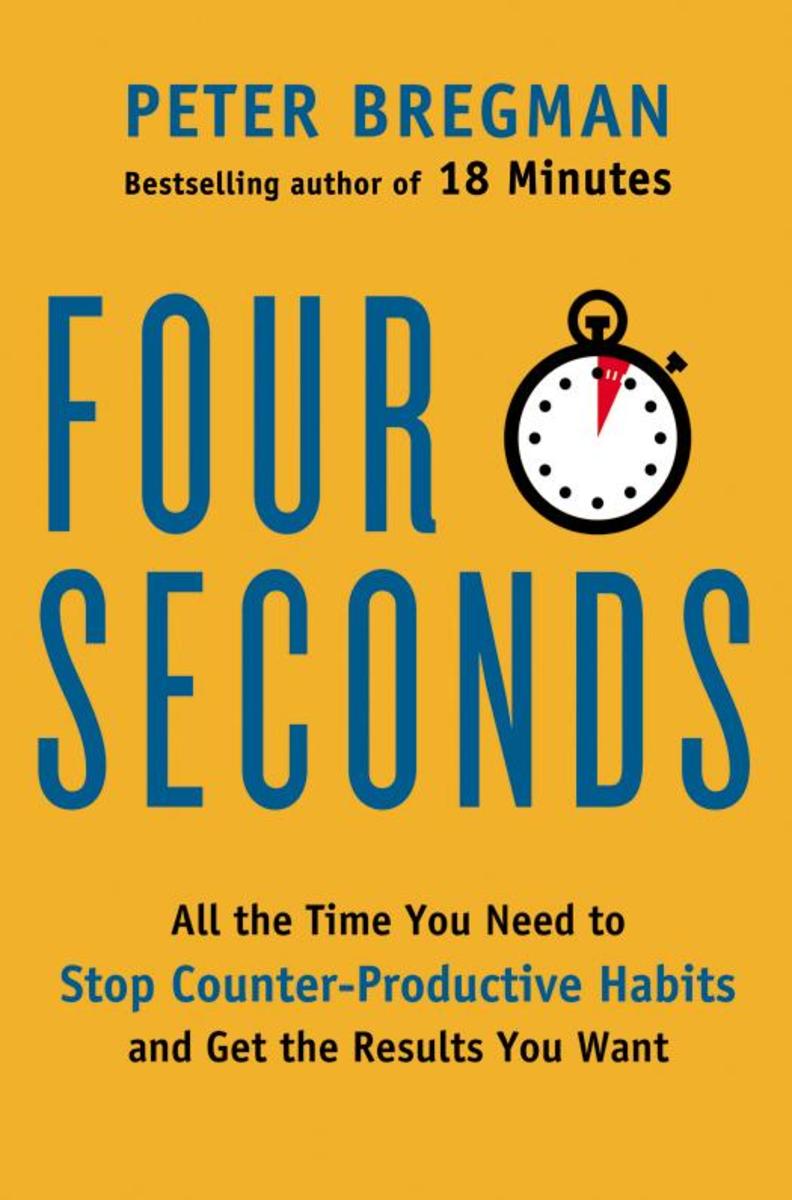
Four Seconds
¥94.10
All too often our best efforts to accomplish the things we want most to do our jobs well, to make meaningful contributions at home and at work, to have satisfying relationships with loved ones, friends, neighbors, and coworkers are built on bad habits that sabotage us. We feel overwhelmed by our increasingly large to-do list, so we automatically multitask to get more done and end up more stressed and more overloaded. We say something with the hopes of impressing the other person, but instead of end them then spend days trying to repair the damage. We give what we think is a pep talk to our team but they walk away demotivated.How can we be most effective and productive in a world that moves too fast and demands so much of us?In Four Seconds, Peter Bregman shows that the answer is to pause for as few as four seconds the length of a deep breath to replace bad habits and reactions with more productive behaviors. In his trademark style of blending personal anecdotes with practical advice, Bregman reveals some of our most common counter-productive tendencies and describes counter-intuitive strategies for acting more intentionally, including: Why setting goals can actually harm your performance How to use strategic disengagement to recover focus and willpower Why listening not arguing is the best strategy for changing someone's mind How taking responsibility for someone else's failure can actually help you succeed Drawn from Bregman's hugely popular Harvard Business Review blog, this engaging and wise book provides simple solutions to create the results you want without the stress.
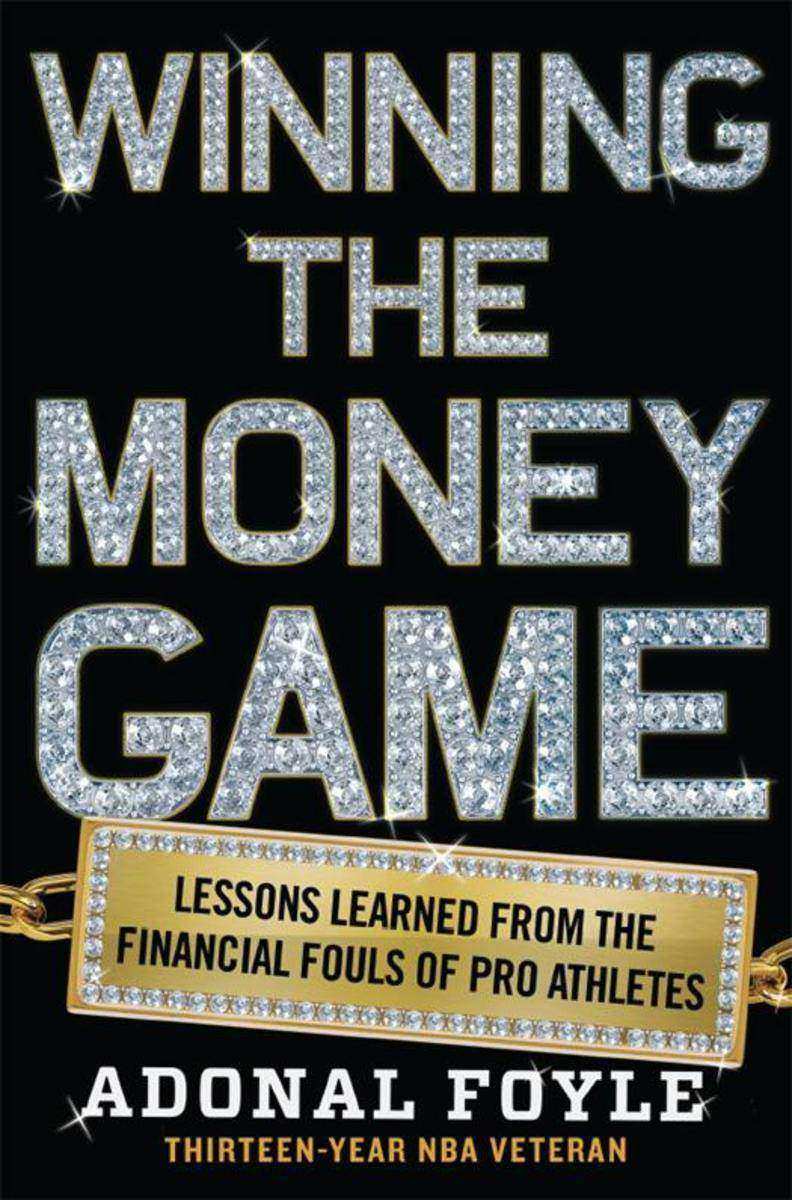
Winning the Money Game
¥94.10
Former NBA center Adonal Foyle has seen athletes burn through millions on women, large entourages, family gifts, gambling debts even shark tanks! Such spending habits are partly responsible for 60 percent of NBA players going broke within five years of retirement and nearly 80 perfect of NFL players being strapped within two.Rich with anecdotes from a sports insider, Winning the Money Game shows you how to avoid the financial fouls of athletes. Foyle gives you the straight, offering guidance on a wide range of money matters, from taxes to alimony, from child support to medical bills, and so much more. He beaks down expenses point by point, illustrating the difference between luxury items and family needs, and lays out the essential dos and don'ts to help you spend, save, and grow your money wisely.
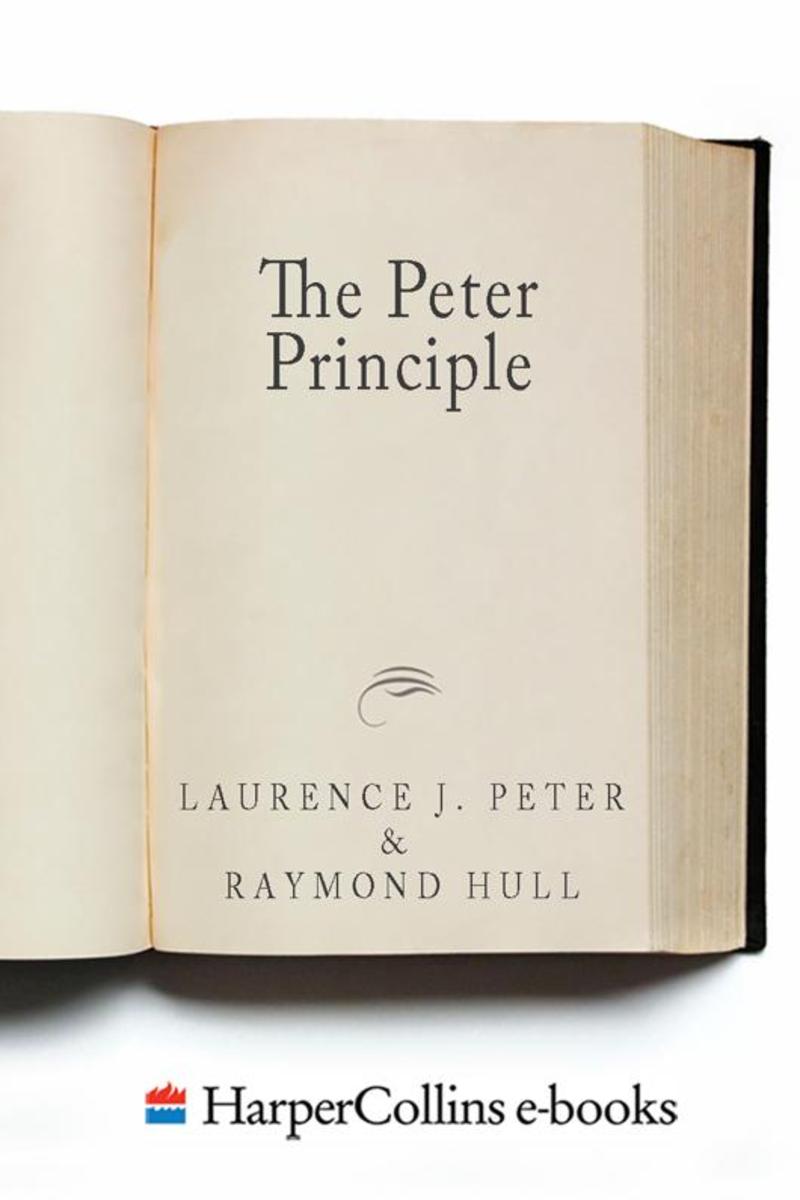
The Peter Principle
¥88.56
The classic #1 New York Times bestseller that answers the age-old questionWhy is incompetence so maddeningly rampant and so vexingly triumphantThe Peter Principle, the eponymous law Dr. Laurence J. Peter coined, explains that everyone in a hierarchy from the office intern to the CEO, from the low-level civil servant to a nation's president will inevitably rise to his or her level of incompetence. Dr. Peter explains why incompetence is at the root of everything we endeavor to do why schools bestow ignorance, why governments condone anarchy, why courts dispense injustice, why prosperity causes unhappiness, and why utopian plans never generate utopias.With the wit of Mark Twain, the psychological acuity of Sigmund Freud, and the theoretical impact of Isaac Newton, Dr. Laurence J. Peter and Raymond Hull's The Peter Principle brilliantly explains how incompetence and its accompanying symptoms, syndromes, and remedies define the world and the work we do in it.
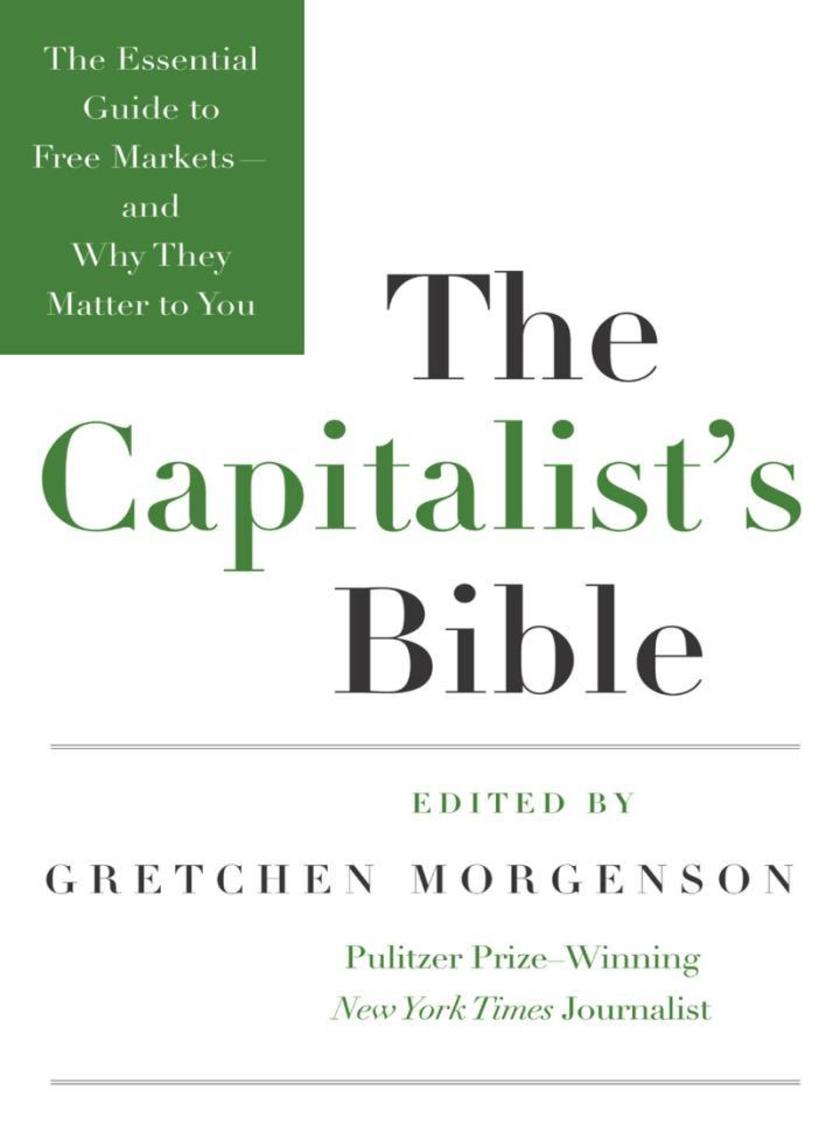
The Capitalist's Bible
¥95.39
Everything you ever wanted and needed to know about capitalism . . . but were afraid to ask. What is capitalism, and will it surviveWhat does globalization really mean and how does it affect your bank accountIf capitalism, left unchecked, has caused disasters like the Great Depression and the financial crisis of 2008–09, why has it been the economic system of choice for centuriesTo many people, the complex, jargon-rich world of capitalism can be intimidating, raising more questions than it answers. However, as the excesses and failures of free-market capitalism continue to hold sway over the daily news and our daily lives, understanding our economic system including where it has succeeded and where it has not is more important than ever. Edited by New York Times business journalist Gretchen Morgenson, The Capitalist's Bible is the essential reference on capitalism and how it works from the people who champion it to the mechanisms and institutions that uphold it to the terms and laws that define it. Whether you seek a more well-rounded understanding of the ideology that underwrites America's and, increasingly, the world's economy, or simply wish to be able to speak more knowledgeably on the subject in conversation, this book is an invaluable tool for understanding capitalism.

Pit Bull
¥105.17
Welcome to the world of Martin "Buzzy" Schwartz, Champion Trader--the man whose nerves of steel and killer instinct in the canyons of Wall Street earned him the well-deserved name "Pit Bull." This is the true story of how Schwartz became the best of the best, of the people and places he discovered along the way and of the trader's tricks and techniques he used to make his millions.
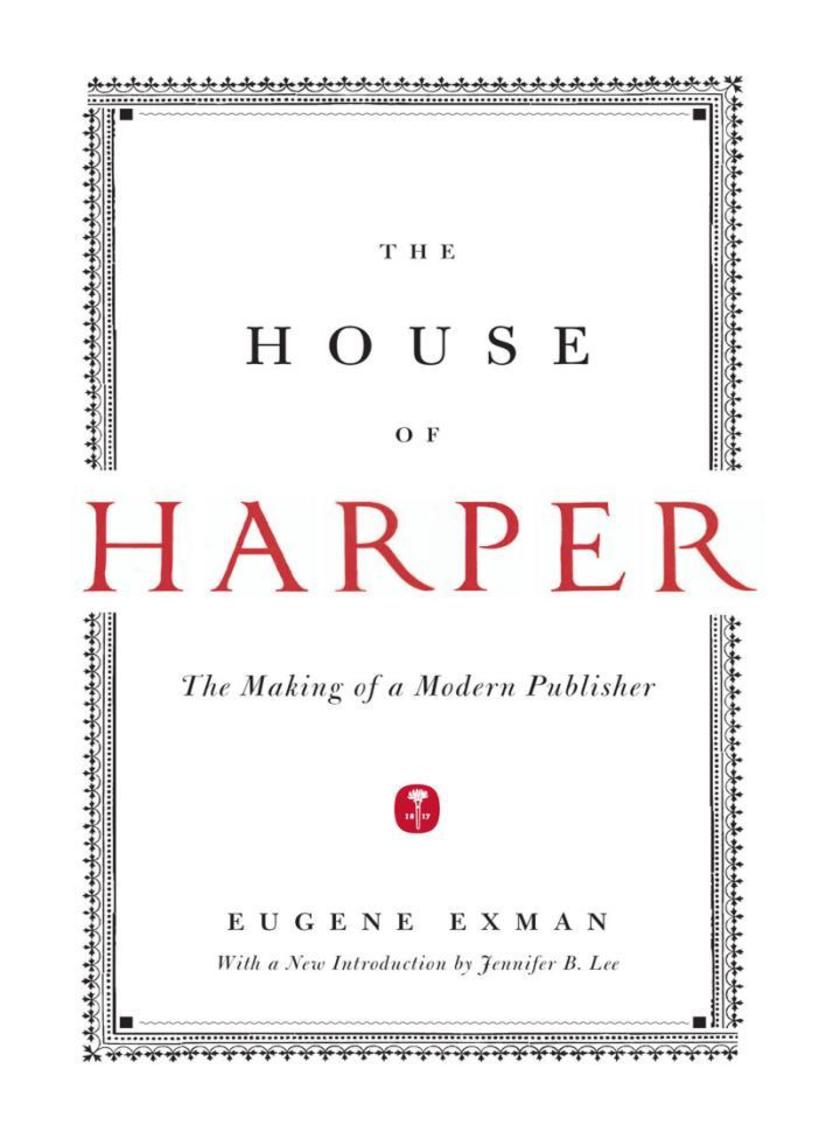
The House of Harper
¥95.39
The epic story of a publishing giantIn 1817 four young brothers opened a printing shop in downtown Manhattan. Two centuries later, their small enterprise has grown into one of the world's largest and most successful publishing houses. The Harper brothers and their sons and successors created a grand cultural institution that has become a cornerstone of America's literary heritage.Eugene Exman's classic history, published in 1967, The House of Harper is the fascinating account of the birth and growth of a magnificent literary empire. Richly detailed, it is filled with portraits of dynamic publishers and editors, with remarkable anecdotes about the legendary artists and authors whose works they championed and brought to the general public Charles Dickens, George Eliot, Herman Melville, Mark Twain, Winslow Homer, Henry James, Edna St. Vincent Millay, Thomas Wolfe, and Aldous Huxley, to name but a few. More than the enthralling saga of a successful business venture, it is a story of the shaping of American literature and culture.
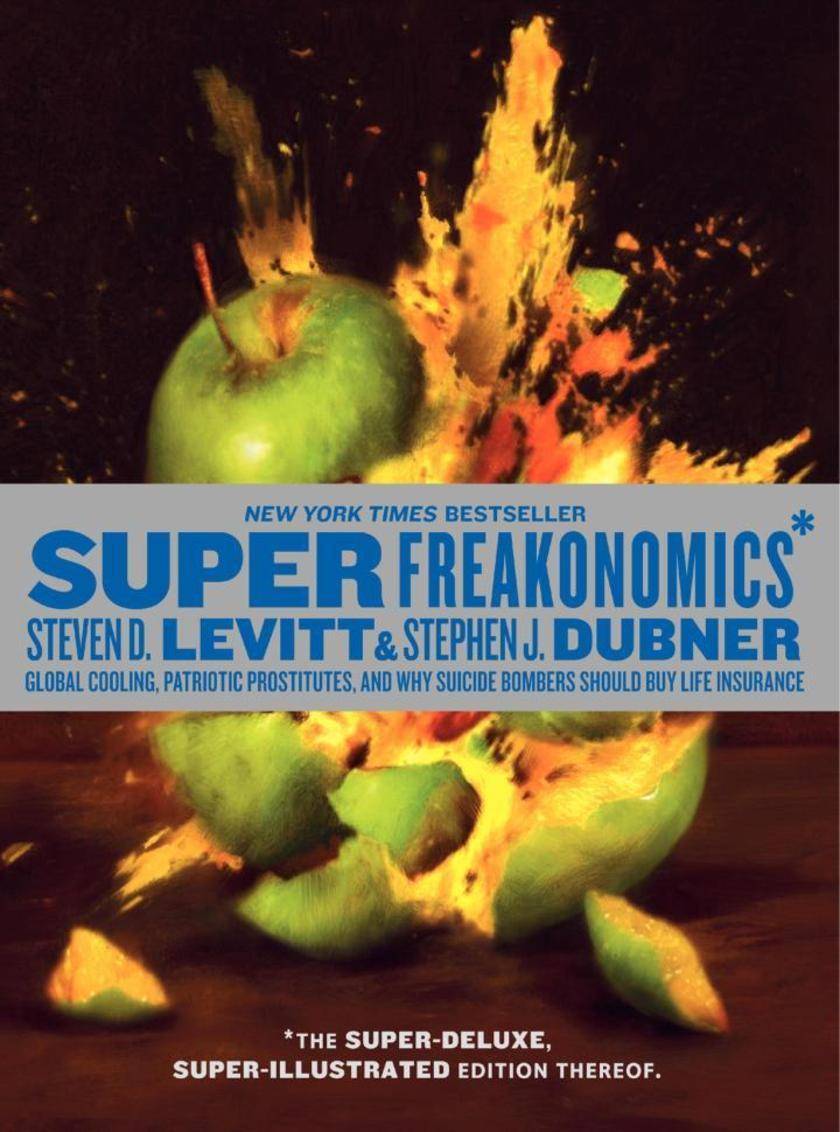
SuperFreakonomics, Illustrated edition
¥223.92
Seeing is believing . . . The Smash Hit SuperFreakonomics is now Bigger and Better SuperFreakonomics was an instant New York Times bestseller that caused a media uproar, continuing the amazing success begun with the groundbreaking, worldwide sensation Freakonomics.With the Illustrated Edition, Steven D. Levitt and Stephen J. Dubner bring alive their smart thinking and great storytelling with an explosion of visual evidence, including: A by-the-numbers tally of a high-priced call girl's career, and a tracking sheet from an intensive survey of Chicago street prostitutes. A visual quiz that lets you pit your memory against the memory of a chess grand master. Images of the hurricane-killing machine and other geo-engineering inventions described in SuperFreakonomics. A look into whether doctors are better at saving lives in TV dramas or in real hospitals. Whether probing the intricacies of sex change oper-ations, the effectiveness of child car seats, or what really motivates people to do good, the Illustrated Edition of SuperFreakonomics employs photographs, drawings, and graphs that will lead readers to see the world in a bold, fresh way.
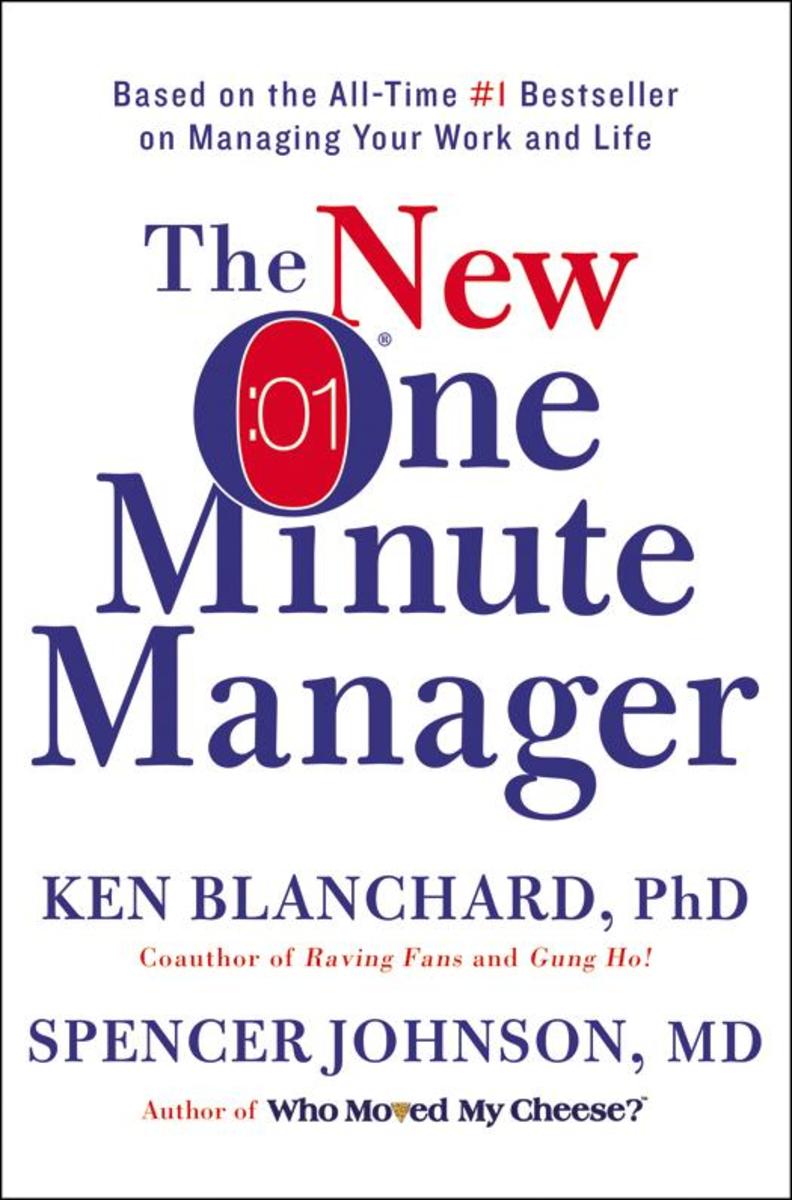
William Morrow
¥132.87
The New One Minute Manager offers a way for you to succeed sooner with less stress in changing times both at work and at home.Based on the original book The One Minute Manager that helped millions of people around the world in organizations large and small, this new version of the classic story deals with a new world.The book will help you find meaning in your work and inspire you to discover new ways to help your organization adapt and prosper.The New One Minute Manager is a concise, easily read story that reveals three very practical secrets: One Minute Goals, One Minute Praisings, and One Minute Re-Directs, the new third secret.The story is based on studies in the behavioral sciences and medicine that support why these apparently simple methods work so well with so many people. And by the book's end, you will know how to apply what you discover to your own situation and enjoy the benefits.

Dey Street Books
¥151.53
The quintessential self-made man, master of brand identity, New York Times bestselling author, and award-winning executive KISS's Gene Simmons shares his manifesto for business success.KISS did not become one of the most successful rock bands in history by accident. Long before he first took the stage, Gene Simmons had a clear-cut operating plan for the business. Over the past forty years, KISS has sold more than 100 million CDs and DVDs worldwide and manages 5,000 licensed merchandise items from comic books and coffins to action figures and video games. The band received a star on the Hollywood Walk of Fame, and in 2014 was inducted into the Rock and Roll Hall of Fame. In addition to KISS, Simmons's lucrative ventures include two hit reality shows, a professional sports team, a restaurant chain, and a record label. A recipient of the Forbes Lifetime Achievement Award, this brilliant executive runs all of his businesses on his own no personal assistant, few handlers, and as little red tape as possible.In Me, Inc., Simmons gives aspiring entrepreneurs the critical tools they need to succeed. He discusses how to build a solid business strategy, harness the countless tools available in the digital age, educate yourself, and be the architect for the business entity that is you. Inspired by The Art of War, Me, Inc. is organized around thirteen specific, easy-to-understand principles for success "The Art of More" drawn from Simmons's own triumphs and failures. From finding the confidence necessary to get started, to surrounding yourself with the right people, to knowing when to pull the plug and when to double-down, these principles can help you attain the freedom and wealth of your dreams.
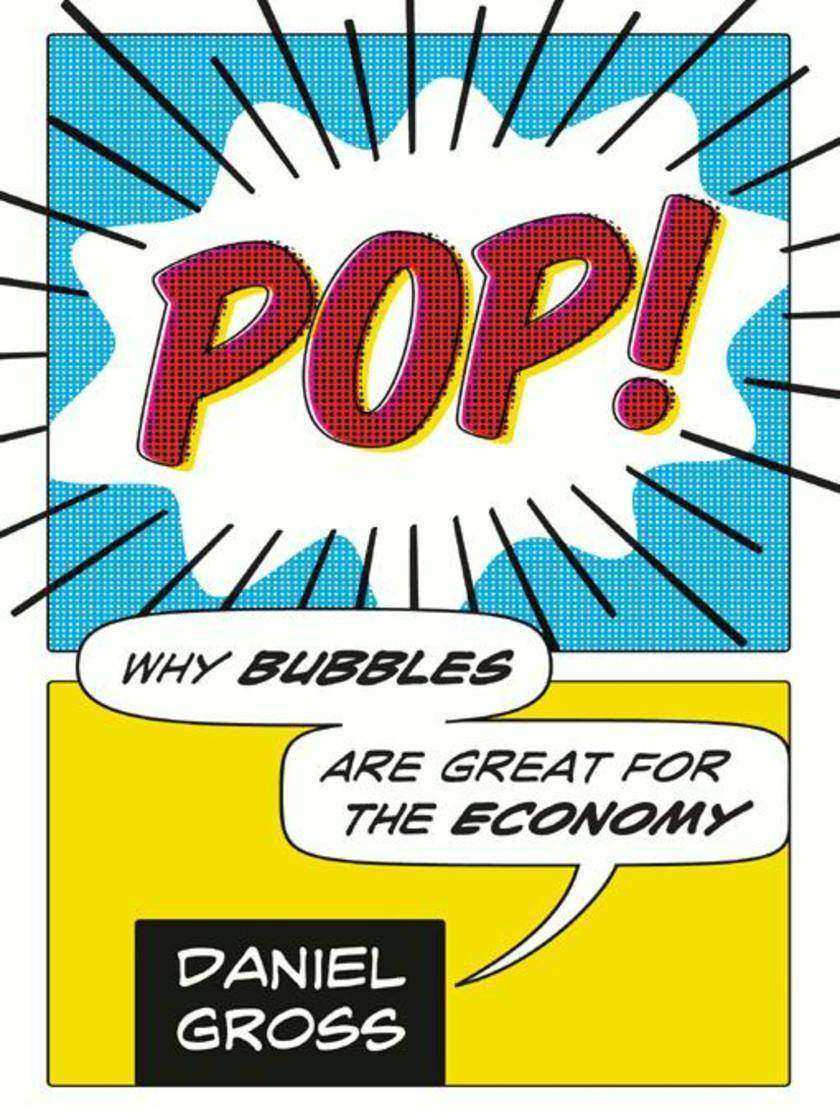
HarperCollins e-books
¥128.85
Bubbles from hot stocks in the 1920s to hot stocks in the 1990s are much-lamented features of contemporary economic life. Time and again, American investors, seduced by the lures of quick money, new technologies, and excessive optimism, have shown a tendency to get carried away. Time and again, they have appeared foolish when the bubble burst. The history of finance is filled with tragic tales of shattered dreams, bankruptcies, and bitter recriminations.But what if the I-told-you-so lectures about bubbles tell only half the storyWhat if bubbles accomplish something that can only be seen in retrospectWhat if the frenzy of irrational economic enthusiasm lays the groundwork for sober-minded opportunities, growth, and innovationCould it be that bubbles wind up being a competitive advantage for the bubble-prone U.S. economy?In this entertaining and fast-paced book you'll laugh as much as you cry Daniel Gross convincingly argues that every bubble has a golden lining. From the 19th-century mania for the telegraph to the current craze in alternative energy, from railroads to real estate, Gross takes us on a whirlwind tour of reckless investors and pie-in-the-sky promoters, detailing the mania they created but also the lasting good they left behind. In one of the great ironies of history, Gross shows how the bubbles once generally seen as disastrous have actually helped build the commercial infrastructures that have jump-started American growth. If there is a secret to the perennial resilience and exuberance of the American economy, Gross may just have found it in our peculiar capacity to blow financial bubbles and successfully clean up the mess.
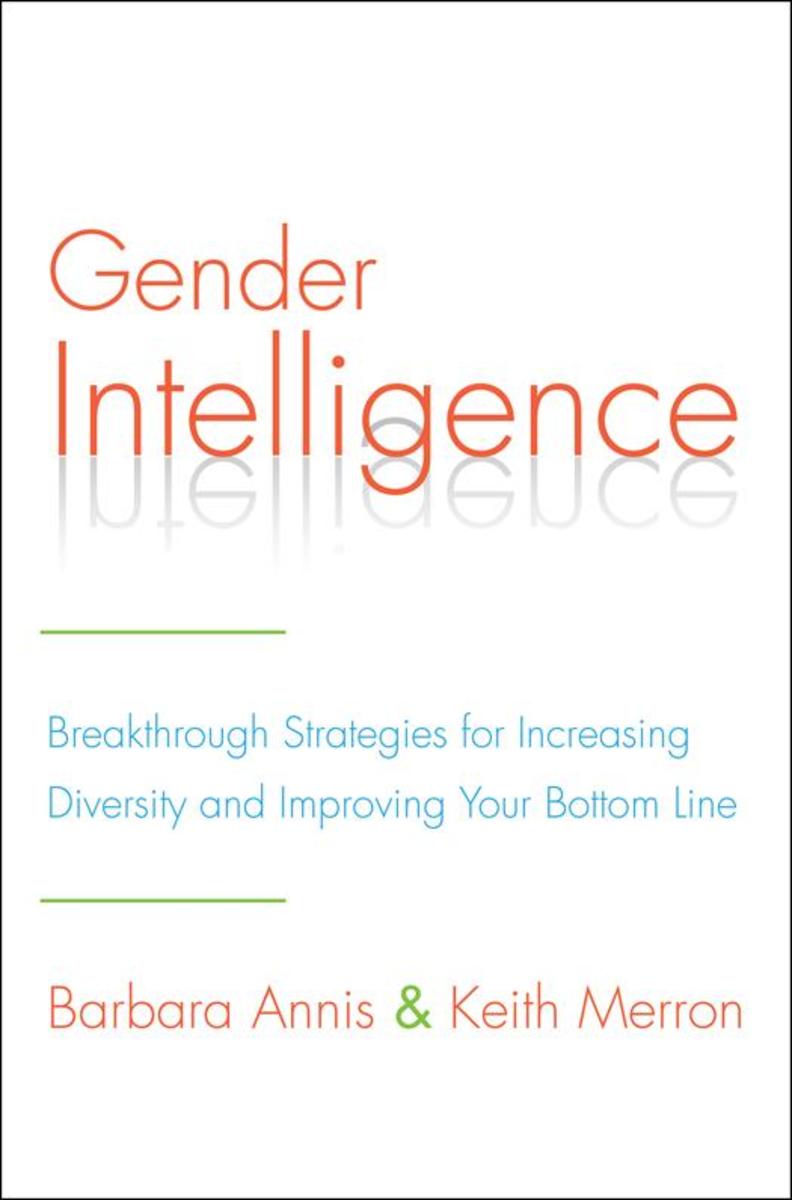
Gender Intelligence
¥155.02
World-renowned experts on Gender Intelligence argue that it is time to move beyond politics and fairness to build an economic business case for gender diversity in the workplace.For too long, companies have played the numbers game attempting to tackle the problem of gender imbalance through affirmative action, numeric standards, and quotas. Yet these efforts have had no measurable impact on the number of women in leadership or on a company's bottom line. Meanwhile, the dominant paradigm of traditional business remains the same.In Gender Intelligence, Barbara Annis and Keith Merron introduce a revolutionary and effective approach that is fundamentally altering the cultures of major corporations around the world. They uncover the forces that create the current condition of gender inequality and reveal, for the first time, the powerful principles that are bringing about a shift in thinking. They highlight organizations that have made the transformation from a focus on gender equity to the more powerful objective of welcoming the natural differences between men and women, which ultimately produces greater economic value. Gender Intelligence proves that the true measure of gender equality does not reside in a percentage but in the untapped power of men and women openly working and winning together.
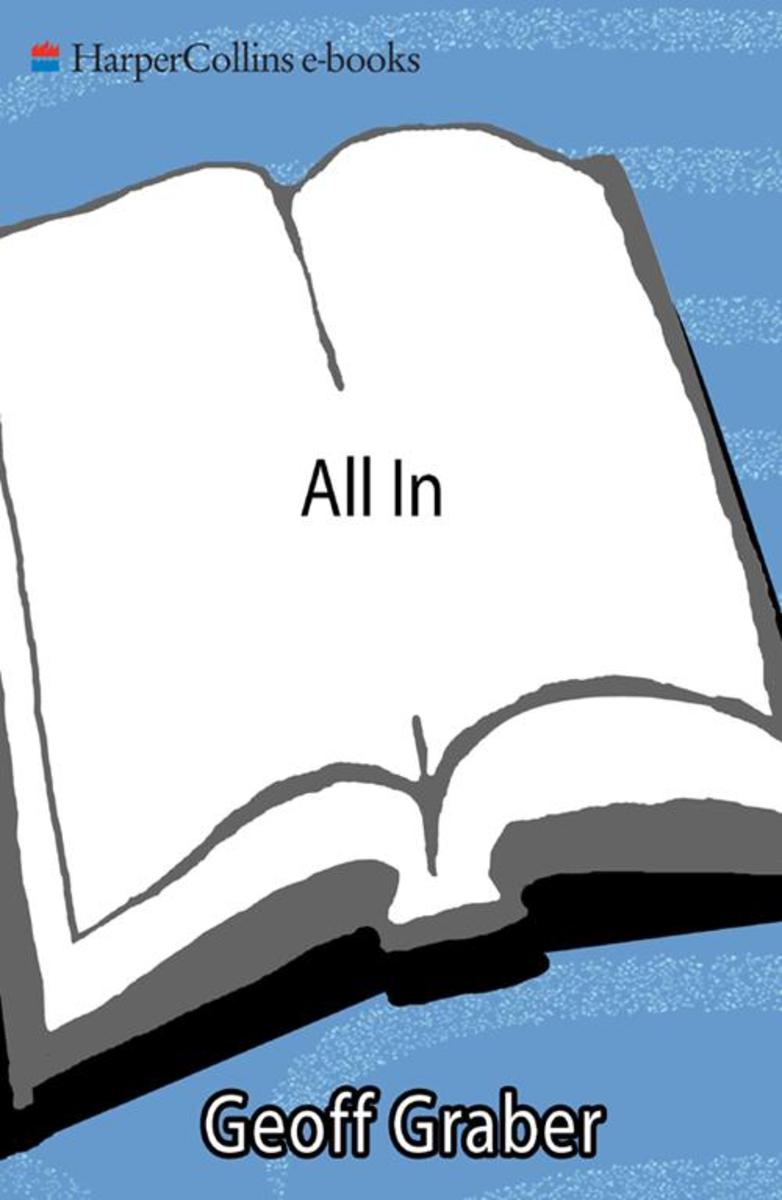
HarperCollins e-books
¥140.08
All In: Poker Night Lessons for Winning Big at Your Career goes beyond any of the other bestselling poker books on the market and at last tells you how to put your poker playing skills to use in the business world. What if the rules and strategies of poker were the same as those More...you use in your real lifeWhat if your real life were an exciting game filled with challenging opponents and chances to win bigWhat if your job was as much fun as your weekly poker gameWell, it can be - and All in will show you how. With this book you'll learn how to: know the rules and know your opponent; define your playing style and leave your emotions at the door; make the most out of a great hand and minimize your mistakes; know when and how to bluff, and know when you're beat; and always keep them guessing, and know when to go all in! The modern-day world of corporate politics is very similar to poker. It's a game where anticipating your opponent's next move and making educated guesses at the cards they hold in their hand is just as important as knowing how to play your own hand and having a strategy for how you want to be perceived by others. All you have to know are the basic rules of the game to benefit from this book. Its theories and ideas can be applied to all facets of the business world. From the student to the CEO, anyone who is looking for a way to take control of their career and have fun while doing it will benefit from this book.
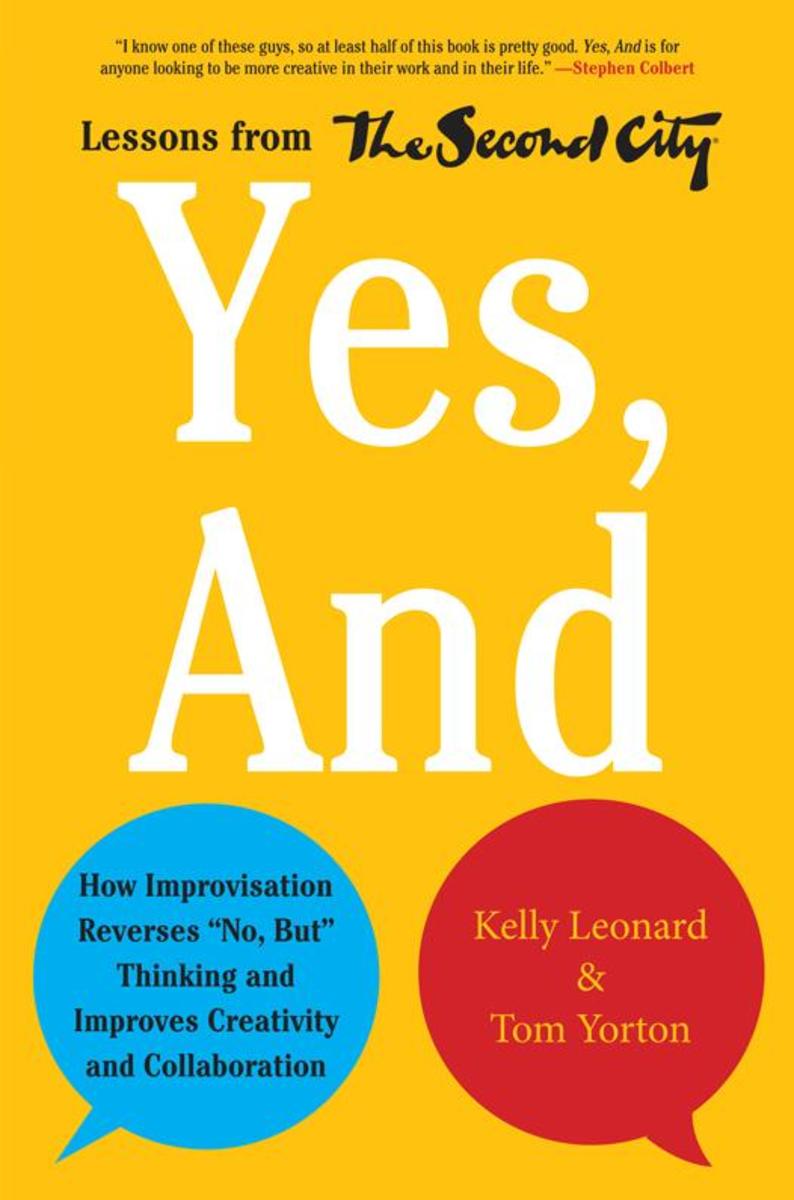
Yes, And
¥162.76
The Second City has launched the careers of celebrated comic performers such as Tina Fey and Stephen Colbert and produced award-winning content. But it's the actual improvisational process developed and honed over the years by The Second City that has become its legacy. Players master an ability to co-create in ensembles, using philosophies that celebrate a "Yes, And" approach. They embrace authenticity and failure, and espouse the idea of "following the follower," which allows any member of the team to assume a leadership role. For more than two decades, The Second City has taken these same principles in thousands of corporate clients, showing leaders how to apply the tools of improv to common business challenges. Here, for the first time, Second City executives Kelly Leonard and Tom Yorton describe how you can use the same skills that thrill audiences around the world to improve your emotional intelligence, increase creativity, and learn to pivot out of tight and uncomfortable situations. In this engaging, often humorous, and highly practical book, you will learn how to become a more compelling leader and a more collaborative follower by employing the seven elements of improv: Yes, And, by which you give every idea a chance to be acted on; Ensemble, reconciling the needs of individuals with those of the broader team; Co-creation, which highlights the importance of dialogue in creating new products, processes, and relationships; Authenticity, or being unafraid to speak truth to power, challenge convention, and break the rules; Failure, teaching us that not only is it okay to fail, but we should always include it as part of our process; Follow the Follower, which gives any member of the group the chance to assume a leadership role; Listening, in which you learn to stay in the moment, and know the difference between listening to understand and listening merely to respond. When we are fiercely following the tenets of improvisation, we generate ideas both quickly and efficiently, we weather storms with more aplomb, and we don't work burdened by a fear of failure. Even better, these qualities are fully transferable to our lives outside the office. More people are beginning to recognize what The Second City has known for a long time: In the midst of a revolution in how we learn, communicate, and work, professional success often rests on the same pillars that form the foundation of great comedy: Creativity, Communication, and Collaboration. That's where improvisation comes in.

Smartcuts
¥149.48
Serial entrepreneur and journalist Shane Snow delves into the reasons why some people and some organizations are able to achieve incredible things in implausibly short time frames, showing how each of us can use these "smartcuts" to rethink convention and accelerate success.Why do some companies attract millions of customers in mere months while others flopHow did Alexander the Great, YouTube phenom Michelle Phan, and Tonight Show host Jimmy Fallon dash to the top in less time than it takes most of us to get a midlevel promotionHow do high-growth businesses, world-class heart surgeons, and underdog marketers beat the norm?Like computer hackers, a handful of innovators in every era use lateral thinking to find better routes to stunning accomplishments. Throughout history, the world's biggest successes have been achieved by those who refuse to follow the expected course and buck the norm.Smartcuts is about bucking the norm. In it, Snow shatters common wisdom about success, revealing how conventions like "paying dues" prevent progress, why kids shouldn't learn multiplication tables, and how, paradoxically, it's easier to build a huge business than a small one.Smartcuts tells the stories of innovators who dared to work differently and lays out practical takeaways for the rest of us. It's about applying entrepreneurial and technological concepts to success, and how, by emulation, we too can leapfrog competitors, grow businesses, and fix society's problems faster than we think.
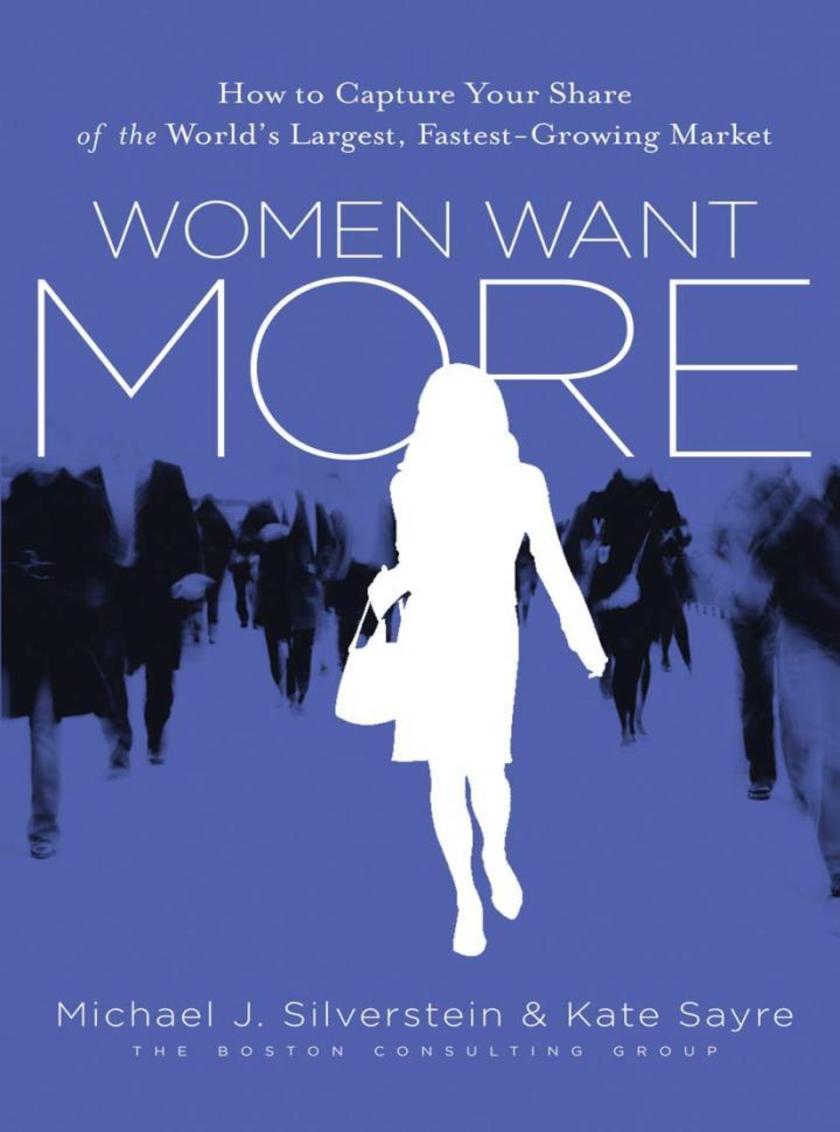
Women Want More
¥157.15
Haven't women gotten everything they wantEconomic powerSocial influenceBusiness cloutYes, but it turns out that these fantastic gains have come at a heavy price, as consumer goods experts Michael J. Silverstein and Kate Sayre discovered in an unprecedented study of 12,000 women in forty countries.That relentless upward climb has left women feeling stressed out, time starved, and overburdened. As a result, they look to products and services that will help them claw back time, juggle multiple roles, and capture a few moments of enjoyment.Women want more much more, in every category of goods and services. And no matter what their age or economic situation or where they live in the world, women will spend trillions of dollars over the next decade on the brands that truly deliver: Home-cleaning products that enable women to do in an hour what used to take a day Financial-services products that recognize that women control half the United States' wealth Food products that help keep the whole family happy and healthy Health care services designed for working-women's hectic schedules In the coming years, women's influence will be so enormous that it will not only help bring us out of the economic downturn but also create one of the most dramatic market opportunities of our lifetime bigger than the rise of China and India; more sustainable than any bailout package.Through quantitative data, profiles of individual women, and stories of winning companies, Women Want More provides business leaders with the understanding and practices they need to capture their share of the rising "female economy."

The Chasm Companion
¥141.57
In The Chasm Companion, The Chasm Group's Paul Wiefels presents readers with a new analysis of the ideas introduced in bestselling author Geoffrey Moore's classic books, Crossing the Chasm and Inside the Tornado, and focuses on how to translate these ideas into actionable strategy and implementation programs. This step-by-step fieldbook is organized around three major concepts: how high-tech markets develop, creating market development strategy, and executing go-to-market programs based on the strategy.
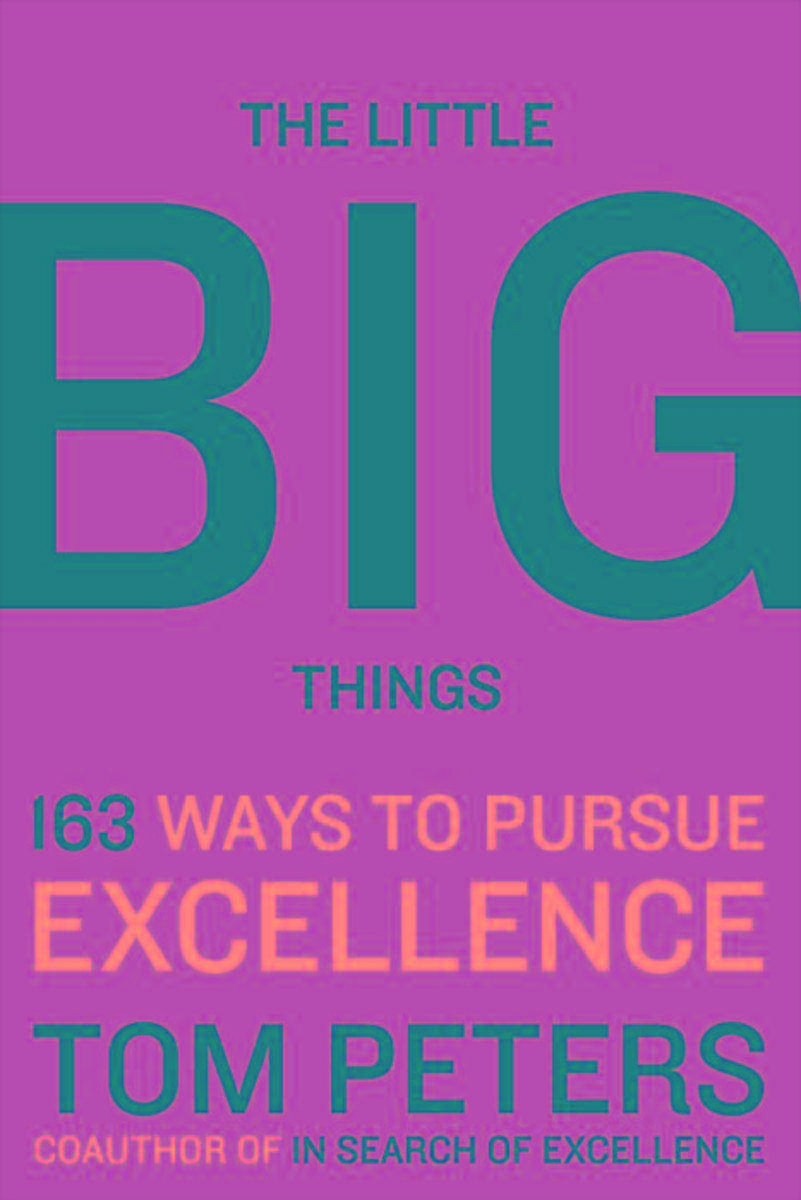
The Little Big Things
¥94.10
#131 The Case of the Two-Cent CandyYears ago, I wrote about a retail store in the Palo Alto environs a good one, which had a box of two-cent candies at the checkout. I subsequently remember that "little" parting gesture of the two-cent candy as a symbol of all that is Excellent at that store. Dozens of people who have attended seminars of mine from retailers to bankers to plumbing-supply-house owners have come up to remind me, sometimes 15 or 20 years later, of "the two-cent candy story," and to tell me how it had a sizable impact on how they did business, metaphorically and in fact.Well, the Two-Cent Candy Phenomenon has struck again with oomph and in the most unlikely of places.For years Singapore's "brand" has more or less been Southeast Asia's "place that works." Its legendary operational efficiency in all it does has attracted businesses of all sorts to set up shop there. But as "the rest" in the geographic neighborhood closed the efficiency gap, and China continued to rise-race-soar, Singapore decided a couple of years ago to "rebrand" itself as not only a place that works but also as an exciting, "with it" city. (I was a participant in an early rebranding conference that also featured the likes of the late Anita Roddick, Deepak Chopra, and Infosys founder and superman N. R. Narayana Murthy.)Singapore's fabled operating efficiency starts, as indeed it should, at ports of entry the airport being a prime example. From immigration to baggage claim to transportation downtown, the services are unmatched anywhere in the world for speed and efficiency.Saga . . . Immigration services in Thailand, three days before a trip to Singapore, were a pain. ("Memorable.") And entering Russia some months ago was hardly a walk in the park, either. To be sure, and especially after 9/11, entry to the United States has not been a process you'd mistake for arriving at Disneyland, nor marked by an attitude that shouted "Welcome, honored guest."Singapore immigration services, on the other hand:The entry form was a marvel of simplicity. The lines were short, very short, with more than adequate staffing.The process was simple and unobtrusive.And:The immigration officer could have easily gotten work at Starbucks; she was all smiles and courtesy.And:Yes!Yes!And . . . yes!There was a little candy jar at each Immigration portal!The "candy jar message" in a dozen ways:"Welcome to Singapore, Tom!! We are absolutely beside ourselves with delight that you have decided to come here!"Wow!Wow!Wow!Ask yourself . . . now:What is my (personal, department, project, restaurant, law firm) "Two-Cent Candy"?Does every part of the process of working with us/me include two-cent candies?Do we, as a group, "think two-cent candies"?Operationalizing: Make "two-centing it" part and parcel of "the way we do business around here." Don't go light on the so-called substance but do remember that . . . perception is reality . . . and perception is shaped by two-cent candies as much as by that so-called hard substance.Start: Have your staff collect "two-cent candy stories" for the next two weeks in their routine "life" transactions. Share those stories. Translate into "our world." And implement.Repeat regularly.Forever.(Recession or no recession you can afford two cents.)(In fact, it is a particularly Brilliant Idea for a recession you doubtless don't maximize Two-Cent Opportunities. And what opportunities they are.)




 购物车
购物车 个人中心
个人中心



